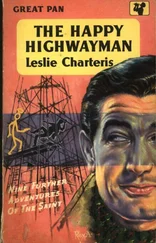Brand Whitlock - The Happy Average
Здесь есть возможность читать онлайн «Brand Whitlock - The Happy Average» — ознакомительный отрывок электронной книги совершенно бесплатно, а после прочтения отрывка купить полную версию. В некоторых случаях можно слушать аудио, скачать через торрент в формате fb2 и присутствует краткое содержание. Жанр: foreign_prose, foreign_antique, на английском языке. Описание произведения, (предисловие) а так же отзывы посетителей доступны на портале библиотеки ЛибКат.
- Название:The Happy Average
- Автор:
- Жанр:
- Год:неизвестен
- ISBN:нет данных
- Рейтинг книги:5 / 5. Голосов: 1
-
Избранное:Добавить в избранное
- Отзывы:
-
Ваша оценка:
- 100
- 1
- 2
- 3
- 4
- 5
The Happy Average: краткое содержание, описание и аннотация
Предлагаем к чтению аннотацию, описание, краткое содержание или предисловие (зависит от того, что написал сам автор книги «The Happy Average»). Если вы не нашли необходимую информацию о книге — напишите в комментариях, мы постараемся отыскать её.
The Happy Average — читать онлайн ознакомительный отрывок
Ниже представлен текст книги, разбитый по страницам. Система сохранения места последней прочитанной страницы, позволяет с удобством читать онлайн бесплатно книгу «The Happy Average», без необходимости каждый раз заново искать на чём Вы остановились. Поставьте закладку, и сможете в любой момент перейти на страницу, на которой закончили чтение.
Интервал:
Закладка:
“He was twenty-two,” she said.
“Just my age,” observed Marley.
Mrs. Marley looked up hastily.
“You’re not thinking of getting married, are you, Glenn?” she asked.
“No.” he said with a laugh.
“My goodness! You’re just a boy!”
“But I’m as old as father was.”
“Y—es,” said Mrs. Marley, “but then—”
“But then, what?”
“That was different.”
Marley smiled.
“Had father entered the ministry yet?” he said presently.
“Yes, we were married in his first year. He had been teaching school, and the fall he was admitted to the conference he was sent out to the Gibsonburg circuit in Green County. We were married in the spring.”
Her face flushed, and she turned the pages of her paper with a dreamy deliberation.
“Ah, but your father was a handsome young man, Glenn!” she said presently.
“He’s handsome yet,” Marley replied with the pride he always felt in his father. And then he asked:
“Did he have any money?”
“Yes,” she said, and she laughed, “just a hundred dollars!”
“A hundred dollars! Well, he had nerve, didn’t he? And so did you!”
“We had more than that,” said Mrs. Marley, solemnly.
Marley looked at his mother suddenly. Her face seemed for an instant to be transfigured in the afternoon glow.
He might have told her then; he was on the point of it, but a footfall on the brick walk outside caused him to look up, and he saw Lawrence coming into the yard. Lawrence beckoned him and he went out.
“Come on,” said Lawrence. “Let’s go out to Carters’.”
Marley looked a question at him, and the smile which Lawrence never could repress long at a time was twitching at the corners of his large mouth.
“She’ll be there.”
“How do you know?” asked Marley.
Lawrence smiled a little more significantly.
When they got to the Carters’ they found Mayme and Lavinia together in the yard, strolling about in apparent aimlessness, yet with an expectancy in their manner that belied its quality of mere idleness. In the look Lavinia gave him all of Marley’s perplexities vanished. Lawrence stood by with a grin on his red face, and Mayme Carter’s eyes danced. She and Lawrence assumed almost immediately an elder, paternal manner, and looked on at the lovers’ meeting as from far heights that were to be reached only after all such youthful experiences had long since become possible in retrospect alone. Still smiling, they edged away, and left the lovers alone.
“Is it really true?” Marley asked.
Lavinia colored a little as she smiled up at him.
“And you are happy?” he asked.
“So happy!” she said.
And then all at once a cloud came over her eyes. She closed them an instant.
“What is it?” he asked in alarm.
“Nothing.”
“Tell me.”
“It’s nothing.” She was smiling again, as if to show that her happiness was complete. “See?” Her eyes were blinking rapidly.
“I’m glad,” he said.
As they turned and walked across the yard Marley looked at her nervously.
“Do you know,” he said, “that I couldn’t remember what color your eyes were?” He spoke with all the virtue there is in confession.
“What color are they?” she asked, suddenly closing her eyes.
“They’re blue,” Marley replied, saying the word ecstatically, as if it had a new, wonderful meaning for him.
“Connie says they’re green.”
“Connie?”
“Yes, don’t you know? She’s my younger sister.”
“Oh.” He did not know any of her family, and the baffling sense of unreality came over him again.
“You’ll know her,” said Lavinia, and added thoughtfully: “I hope she’ll like you. Then there’s Chad, my little brother.”
Marley was growing alarmed at the intricacies of an introduction into a large family, the characters of which were as yet like the characters in the first few chapters of a novel, but he thought it would not reflect on him to admit that he did not know Chad, seeing that he was merely a little brother.
“He admires you immensely,” said Lavinia.
“Does he?” said Marley, eagerly, instantly loving Chad. “How does he know me?”
“He says you were a football player at college.”
Marley laughed a modest deprecation of his own prowess.
“But I knew your voice,” said Lavinia.
“Did you? When did you hear it?”
“As if you didn’t know!”
“Honestly,” he protested. “Tell me.”
“Why, that night that you serenaded me.”
He was regretting that she had outdone him in observation, but she suddenly looked up and said:
“Oh, Glenn! What a beautiful voice you have!”
It was the first time she had ever called him Glenn, and it produced in him a wonderful sensation.
They had come to a little bench, and, sitting there, they could only look at each other and smile. Marley noticed that a little line of freckles ran up over the bridge of Lavinia’s nose. They were very beautiful, he thought, and yet he had never heard of freckles as one of the elements of a woman’s beauty. Then he leaned back and looked about the yard.
He had always thought of it as it seemed that first night, enormous, enchanted, with wide terraces and fountains, and white statues gleaming through the green shrubbery. But now he saw no terraces, no statuary, no fountains, and no wide lawns; nothing but a cramped little yard crowded with bushes and trees, and surrounded by a weathered fence that had lost several pickets. He looked around behind the house where he had fancied long stables with big iron lamps over the doors, but now he saw nothing but an old woodshed and a barn on the rear end of the lot. The cracks in the barn were so wide that he could see the light of day between them as through a kinetoscope. He heard a horse stamping fretfully at the flies.
“It was here,” he said, “that I first saw you.” He did not speak his whole thought.
“Yes,” she answered. “I remember.”
“That was a wonderful night, the most wonderful of my life, except the one at the lake.”
He drew close to her. “I loved you at first sight,” he whispered.
“Did you?” She looked at him in reverence.
“Yes,—from the very first moment. When you came into the room, I knew that—”
“What?”
“That you were the woman I had always loved and waited for; that I had found my ideal. And yet they say we never discover our ideals in this life!”
He laughed at this philosophical absurdity.
“What did you think then?” he asked.
She cast down her eyes, and probed the turf with the toe of her little shoe.
“I loved you then too.”
He gazed at her tenderly, rapturously.
“Isn’t it wonderful?” he said presently, “this love of ours? It came to us all at once!”
She looked at him suddenly. Her short upper lip was raised.
“It was love at first sight, wasn’t it?”
“Yes. We were intended for each other.”
They sat there, and went over that first night of their meeting and that other night at Greenwood Lake, finding each moment some new and remarkable feature of their love, something that proved its divine and providential quality, something that convinced them that no one before had ever known such a remarkable experience. They marveled at the mystery of it.
But at last they must return to practical questions, and they resumed the account of their family relations. Marley told Lavinia about his father and mother, about his sister who had died, and then about his grandparents, and his uncles and aunts. He told her even of Dolly, behind whom she had driven to Greenwood Lake, and of his father’s love for fast horses, a love which sometimes drew upon his father the criticism parishioners ever have ready for their pastor. And he told her about his home, and how frequently his mother had to entertain transient ministers, and how the church laid missionary work upon her, until he feared the heathen would unwittingly break her down.
Читать дальшеИнтервал:
Закладка:
Похожие книги на «The Happy Average»
Представляем Вашему вниманию похожие книги на «The Happy Average» списком для выбора. Мы отобрали схожую по названию и смыслу литературу в надежде предоставить читателям больше вариантов отыскать новые, интересные, ещё непрочитанные произведения.
Обсуждение, отзывы о книге «The Happy Average» и просто собственные мнения читателей. Оставьте ваши комментарии, напишите, что Вы думаете о произведении, его смысле или главных героях. Укажите что конкретно понравилось, а что нет, и почему Вы так считаете.












